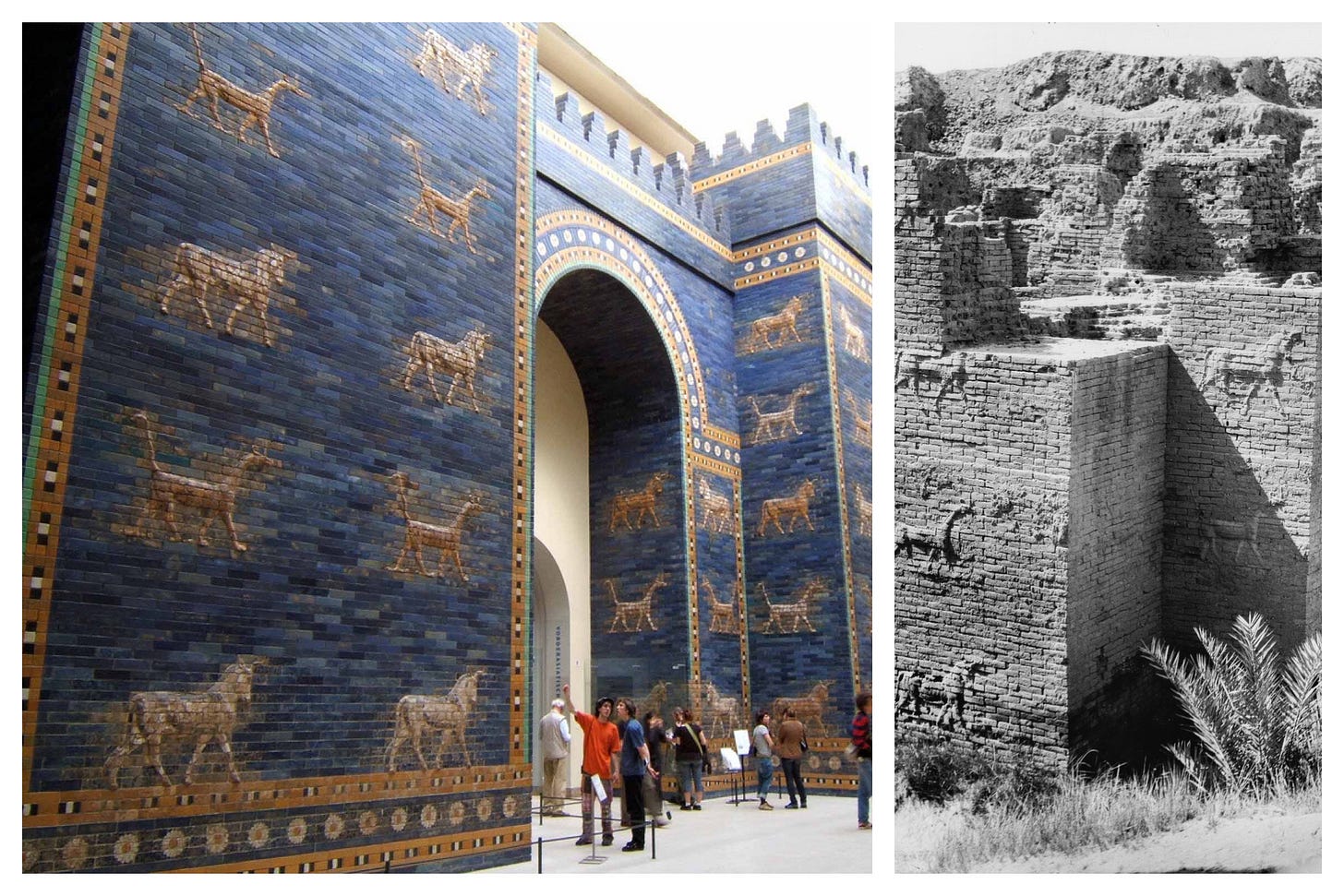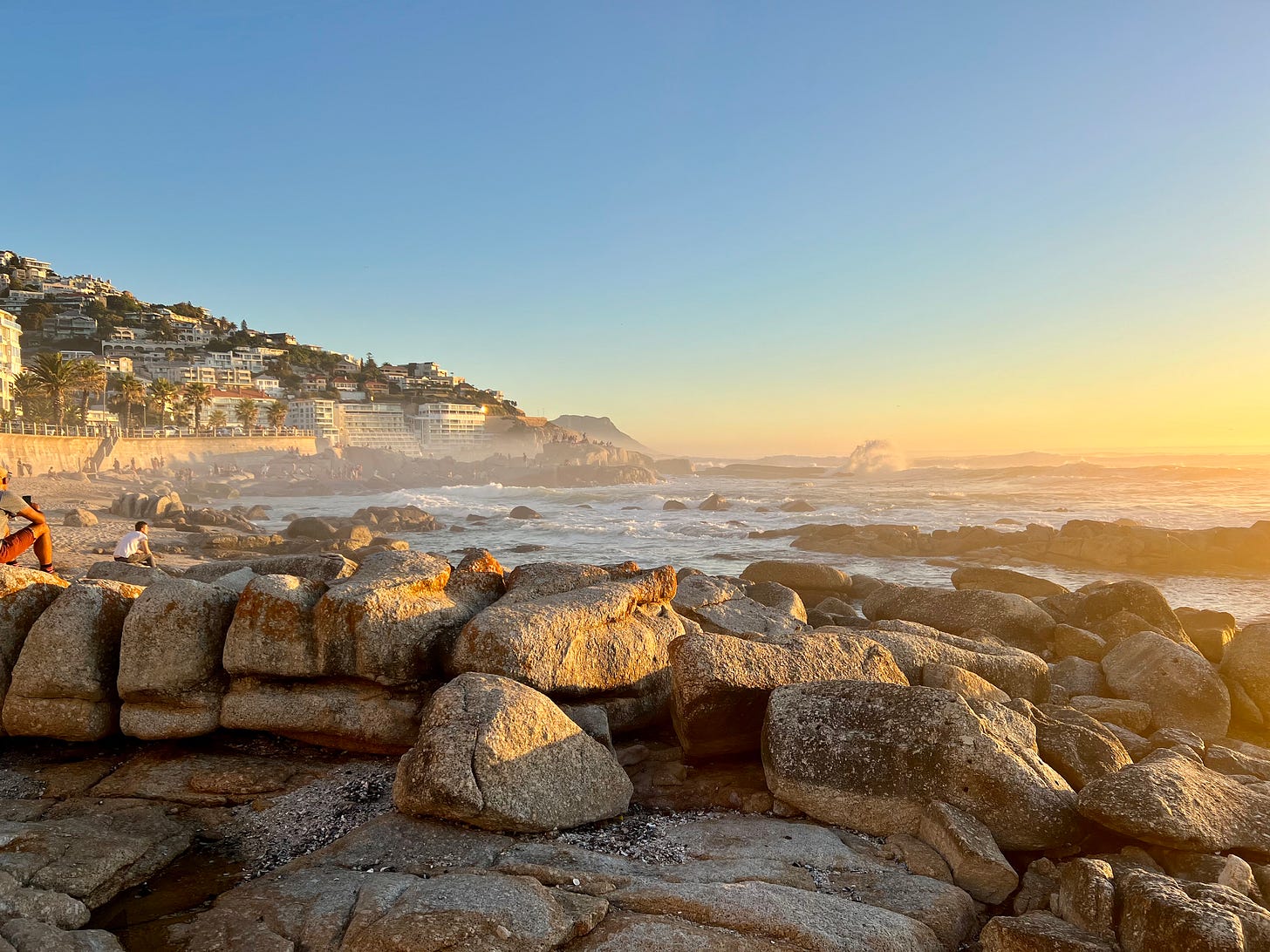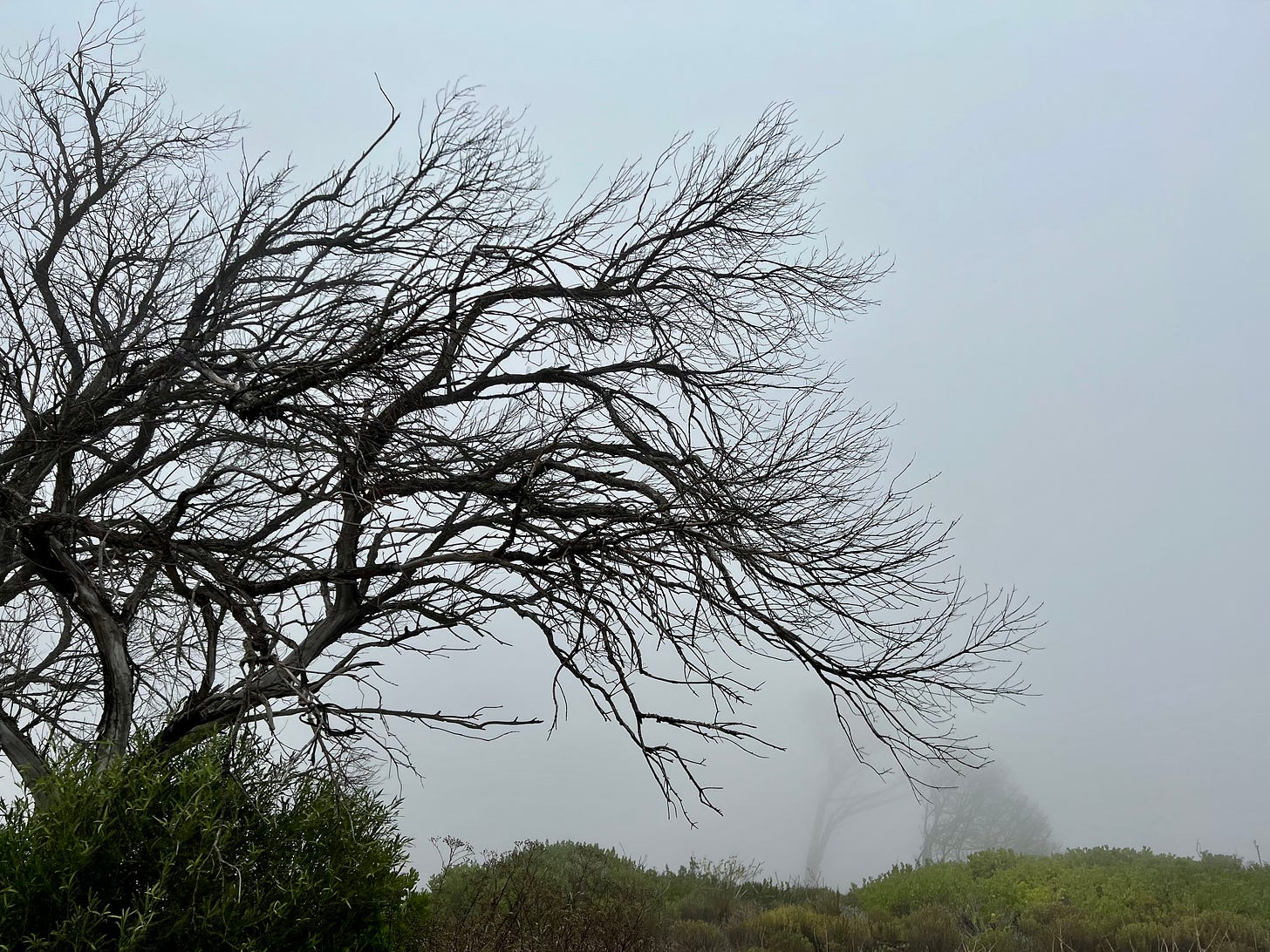Hello! Hope you’re well. Here’s the latest:
No One Dies
Today’s episode of Holy Ghost Stories is a welcome respite from the usual shadowy, tragic, sometimes terrifying content of the Old Testament. This story’s roots lie in tragedy, but the tale itself is one of mostly success and hope. (A nice change after Tamar a couple of weeks ago.)
Set in the first years of Judah’s exile in Babylon, this is story of Daniel and his friends finding their way in a foreign land, conscripted into an almost Estherian grooming and selection process (minus the marriage bit). As I say in the episode’s prologue, it’s a story about faith behind enemy lines, about artful resistance and nonviolent refusal, about creative—even diplomatic—defiance.
Banished, Restored
If you’ve never considered the Bible as essentially an Exile-and-Return story, I’d encourage you to explore that angle a bit. Beginning with the Fall and Adam & Eve’s expulsion from Eden, a pattern emerges: Covenant Breaking ⟹ Banishment ⟹ Eastward Trek ⟹ Exile. After the Garden, we see versions of this sequence play out with Cain, with the Tower of Babel, with Israel’s captivity following Assyrian conquest, with Judah’s defeat and subsequent waves of resettlement in Babylonia, and even when the Israelites return to their homeland and find it ruined, inhospitable, and a sort of exile of its own. Throughout and beyond all of this is the largest narrative arc in the Bible: humanity’s expulsion from Paradise and Yahweh’s work to bring us back, bookended by the Tree of Life’s appearance in Genesis 2 and reemergence in Revelation 22.
The Bible Project has put together some great stuff tracing this theme—in a series of 7 in-depth podcast episodes and in some quick videos as well.
This episode raises questions about how the people of God might live out their faith in a place where false devotion and behavior contrary to the way of Christ are the default. Daniel is usually vaunted by Christians for his civil disobedience and refusal to compromise, but his approach to his situation is a good bit more nuanced than simple disengagement or withdrawal.
I’m fascinated by the way Yahweh uses exile both to punish those who break His covenant and to send faithful people (like Daniel) out into a world that needs light. I see Him, in this way, caring for the nations—and speak to that a bit in the final scene of this episode (as well as in Yahweh’s appelation in the title). Exile isn’t the death of the Kingdom; it’s the Kingdom taking flight.
A Few Other Thoughts About This Episode:
I loved getting to imagine Daniel and his friends as young teenagers. I tried to capture a bit of the innocence and magic of childhood in their interaction as we meet them in this episode.
Picturing the four of them entering the gates of Babylon, I couldn’t help picturing Harry moving through the bricks into Diagon Alley, adventure and danger thick in the air.
Given the lighter mood of this story’s events, I had a tough time scoring this episode. I feel good about where it landed musically, but man—this one took a while.
The text says the Judean boys were taught in the language and literature of Babylon, which almost certainly would have included the Epic of Gilgamesh, which would have been at least 600 years old when Daniel arrived in Mesopotamia. I’m always a fan of film/TV moments in which a classic tale from literature is somehow overlaid with parallel events happening in the story, and was happy to get to do that here. By the way, in case your Spotify library is short on songs about the Gilgamesh wild man, Enkidu, here’s a good one for you.
If you’re wondering whether I made up the foods served in Nebuchadnezzar’s palace, the answer is (always) no—we actually have pretty good info on what the ancient Babylonians ate. Accordingly, everything I list in the episode is a legitimate representation of what was likely served (though I did take the liberty of putting the ingredients into dishes that sounded good to me). In case you’re wondering (and I know you are), we do have a record of 3 actual recipes from waaay back in Babylon—1,500 years before Daniel showed up. A group from Yale did their best to recreate them—though in my humble opinion, these students could use some lessons on plating.
I wanted this episode to speak to the extraordinary ways Nebuchadnezzar II shaped Babylon’s infrastructure—the Ishtar Gate, the Hanging Gardens of Babylon, etc. (I know, I know, no one knows for sure whether the Hanging Gardens actually existed or whether Nebuchadnezzar was the one who really built them. For what it’s worth, I think he did.) The problem is, Daniel enters the city at the very beginning of Nebuchadnezzar’s reign—which means most of the building projects Nebuchadnezzar initiated wouldn’t yet have been built. You’ll hear, though, that I couldn’t help but include the Ishtar Gate in the episode. See if you think I snuck it in reasonably enough. :)

Finally, as I considered what he does in this story (and how he manages to do it), I couldn’t help but see Daniel as a confident, charming, almost mischevious young man. I love the way he uses his power to find a way to serve Yahweh (and lead his friends to do the same). Bonus points if you pick up on a particular character from literature I was channeling as I imagined Daniel’s response to objections from Shadrach and the guys. Reply with your guess—get it right and I’ll buy you a drink at Starbucks.
Okay—without further ado, here’s “The Counselor and the Conscientous Objectors”. Enjoy!
Listened already? Let me know what you thought. Anything in this episode surprise you? Would you have told the story differently? Anything inspire or offend you? Just reply to this email—I’d love to hear from you.
South Africa Lately
Moments from our Cape Town wanderings of late. (We’re heading out on a safari this week, so expect some photographic trophies next time.)
Your Cool Things
Honestly, I’m a little low on cool things at the moment. I always love hearing about what’s interesting to you, though, so hit me up: online or otherwise, what’s got you saying “Wow!” lately?
That’s the latest! Be sure to check out “The Counselor and the Conscientious Objectors” and share it with somebody who’d like it.
Also, don’t forget to let me know if you can suss out my character inspiration for Daniel in that one scene. Part of me feels like I’ll be super impressed if you can, and yet part of me thinks “how could they miss it?”
Gratefully,
Justin
*Know someone who needs this newsletter in their life? Pass it on to them.
**Want to team up with me to tell the stories of the Old Testament in new ways?







